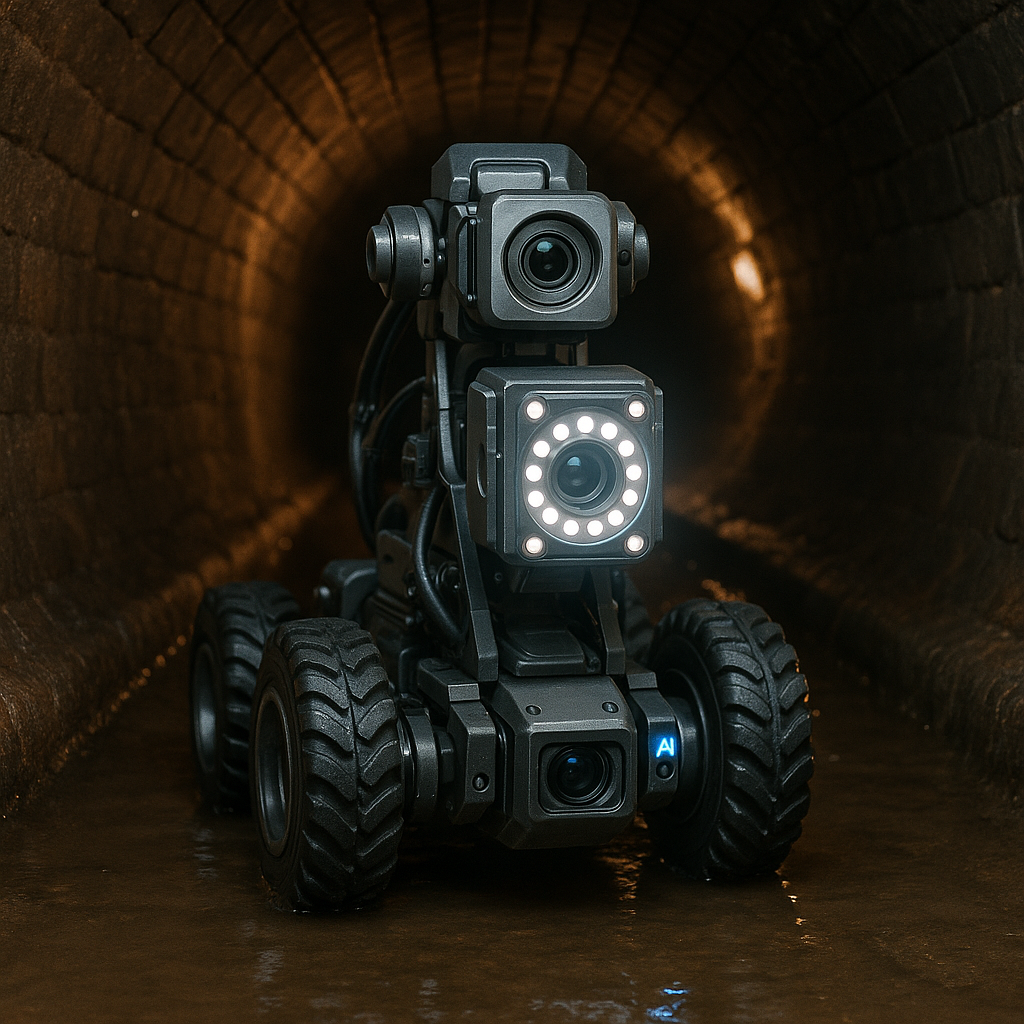Innovative Sewer Inspection: Case Studies and Insights
Explore groundbreaking sewer inspection case studies showcasing AI and robotics advancements, with insights on safety, efficiency, and market growth.

Introduction
In 2024, the sewer inspection industry is undergoing a transformative phase driven by advancements in technology and increasing regulatory demands. This article explores case studies in sewer inspection, highlighting how businesses are leveraging cutting-edge technologies to enhance efficiency, safety, and compliance.
The Role of Technology in Sewer Inspection
Robotic and AI-Enhanced Systems
The integration of robotic systems equipped with high-resolution cameras and AI-driven analytics is revolutionizing how sewer inspections are conducted. These technologies allow for more accurate defect detection and 3D mapping, enabling detailed analysis without the need for extensive manual intervention.
Advancements in Sewer Cameras
Sewer cameras have evolved to feature 4K and ultra-HD imaging, offering unparalleled clarity. The incorporation of wireless technology makes these systems more portable, facilitating inspections in confined spaces.
Non-Destructive Testing (NDT) Methods
NDT methods are becoming standard practice, allowing for thorough inspections that minimize infrastructure damage and extend asset life. This approach supports compliance with stringent environmental regulations.
Industry Regulations and Standards
Increased focus on environmental compliance is prompting municipalities to adopt advanced inspection technologies. Governments are mandating proactive maintenance strategies to prevent leaks and contamination, with funding allocated for infrastructure upgrades.
Market Trends and Opportunities
Global Market Growth
The sewer inspection market is projected to experience robust growth, with a CAGR between 5.5% and 7.5% throughout the decade. This expansion is driven by urbanization and the need to modernize aging infrastructure.
Emerging Market Potential
Emerging economies present significant opportunities for affordable, innovative inspection solutions. Businesses are increasingly targeting these markets to provide tailored services.
Safety Protocols and Best Practices
Enhancing Worker Safety
Robotic systems reduce human exposure to hazardous environments, enhancing safety. Real-time data analytics allow for targeted maintenance, minimizing operational disruptions.
Best Practices
- Use of portable, wireless equipment for ease of access in confined spaces
- Implementation of AI-driven analytics for predictive maintenance
- Adopting non-destructive testing methods to preserve infrastructure integrity
Case Studies in Sewer Inspection
While specific case studies are not detailed here, industry reports highlight successful deployments of robotic crawlers that have improved inspection accuracy and reduced costs for municipal systems.
Cost and Pricing
High-end robotic systems command premium prices due to their advanced features. The market for sewer cameras alone is expected to grow from USD 389 million in 2024 to over USD 600 million by 2032.
Conclusion
The sewer inspection industry is poised for significant growth, driven by technological advancements and regulatory demands. Businesses investing in these technologies can achieve enhanced safety, efficiency, and compliance, positioning themselves for future success.
Practical Tips
- Invest in AI and robotic technologies to improve inspection accuracy.
- Stay informed on regulatory changes to maintain compliance.
- Explore emerging markets for growth opportunities.
Table of Contents
- Introduction
- The Role of Technology in Sewer Inspection
- Robotic and AI-Enhanced Systems
- Advancements in Sewer Cameras
- Non-Destructive Testing (NDT) Methods
- Industry Regulations and Standards
- Market Trends and Opportunities
- Global Market Growth
- Emerging Market Potential
- Safety Protocols and Best Practices
- Enhancing Worker Safety
- Best Practices
- Case Studies in Sewer Inspection
- Cost and Pricing
- Conclusion
- Practical Tips